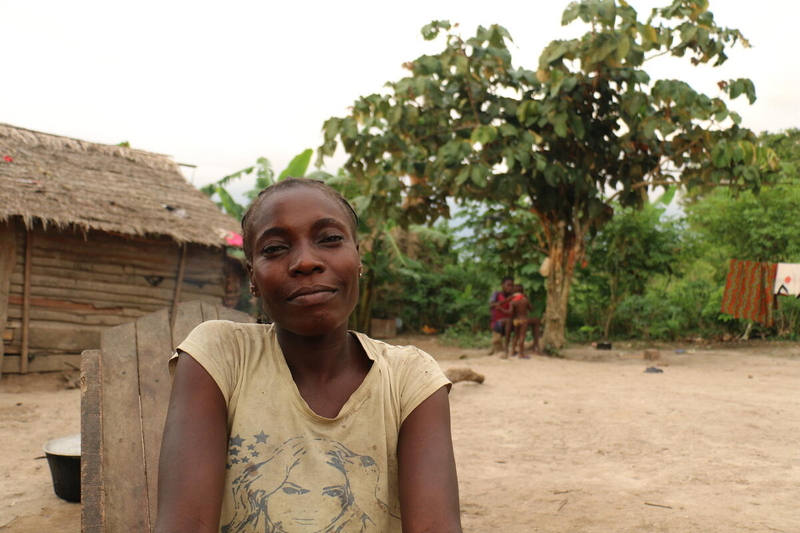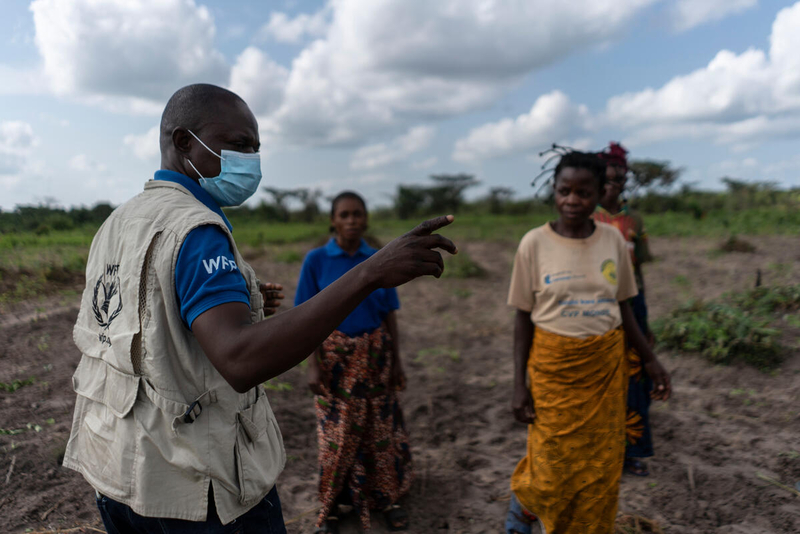“Everything Has Changed”: The Congo Is Heating Up

“Everything has changed,” says the elder in a deliberate, clear voice. “We used to understand the weather. Not anymore.” A member of one of Congo’s indigenous communities, she and thousands of others in the remote and forested north are experiencing the impacts of a changing climate.
The green and well-watered Congo basin might not immediately come to mind as a place exposed to climate change. But as the elder says, something is not right. Meteorological data shows that over the past 20 years alone, temperatures have risen by 0.6 degrees Celsius in Northern Congo. While rainfall totals have remained constant, patterns have become erratic and extreme rainfall events are more common. These trends are forecast to continue, making Congo hotter and more exposed to dry spells and violent storms.
A wide range of impacts
This year the Congolese government, the United Nations World Food Programme (WFP) and partners led community consultations to understand how changes in the climate are affecting people. We spoke to 1,000 people in 20 communities, and the stories they told were concerning.
Because of the dry spells, the rivers, where generations have fished to feed their families, have run dry. The season for caterpillars — a prized, seasonal delicacy, and valuable protein source — has shifted. The wild honey that people rely on for income is less available. Rainfall patterns have become unpredictable, making subsistence farming a gamble. In short, complex local food systems and livelihoods are under threat.
As the climate changes, communities are also experiencing deforestation and rapid social change as more roads are built to connect neighboring areas. Impacts are especially hard on the indigenous people of Congo’s remote forested north, a group of hunter-gatherers who are increasingly settling in frontier towns. Access to health services, educational and economic opportunities remains inadequate for the indigenous community, exposing them to the brunt of the impacts.

Solutions on the horizon
The Congolese people are resilient and already adjusting to climate change, however without assistance, the the most vulnerable people could lose access to important food sources and income.
Together with its partners, WFP encourages the integration of a variety of technologies, services and tools to better equip communities to adapt to the impacts of climate change. This can include diversifying livelihoods, protecting assets, improving access to markets and rehabilitating land. It also means working with governments to ensure these initiatives can be incorporated into national policy and planning.
The consultations have helped the Congolese government and WFP identify how to support people as they transition and adapt to a warmer climate.
To strengthen their livelihoods, the people identified a few projects. One such project is beekeeping. Because wild honey fetches good prices, people are interested in learning and testing new beekeeping techniques. We discussed improved, more sustainable fishing techniques. Also, we discussed growing mushrooms, a nutritious food that people gather in the forest but that can also be grown at home using an affordable, locally made kit .
Indigenous communities are also keen for their children to continue attending school, where they have a chance to learn and succeed in modern-day Congo. Currently, WFP’s school meals programme in some 60 schools in the indigenous communities of northern Congo provides learners with a daily hot and nutritious meal, improving food security at household level.
Thanks to a grant from the European Union and in partnership with the Food and Agriculture Organization, WFP is already working with some 200 small holder farmers, helping them improve their farming techniques, reduce post-harvest losses and secure improved access to markets. These improvements will result in a stronger, more resilient food system that will continue meeting people’s needs, even in an ever hotter and wetter climate.
This story was written by Jean-Martin Bauer and originally appeared on WFP’s Insights.




